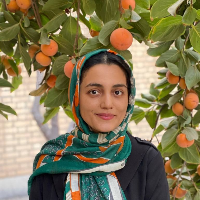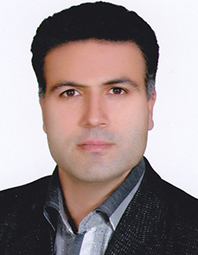The effectiveness of mindful self-compassion training on loneliness,internalized shame, experiential avoidance and cognitive fusion inmothers with children with autism spectrum disorder
Challenges caused by continuous care, maintenance and support of a child with autism spectrum disorder affect the social relationships of these mothers and these mothers feel inferior and powerless, self-blame because of their child's inappropriate behavior and the society misunderstands these children. They have resistance to negative experiences. Therefore, this research was conducted with the aim of determining the effectiveness of mindfulness self-compassion training on feelings of loneliness, internalized shame, experiential avoidance and cognitive fusion in mothers with children with autism spectrum disorder.
This research was a semi-experimental method with pre-test and post-test with experimental and control groups. The statistical population of the present study included mothers with children with autism spectrum disorder who attended one of the psychological clinics in Yazd. Thirty qualified people were selected by purposeful sampling based on the entry and exit criteria and were randomly replaced in the control group (15 people) and the experimental group (15 people). The experimental group received ten mindfulness selfcompassion sessions as a group, and the control group did not receive any intervention. The research tools included Russell, Curtona & Peplau (1993) loneliness scale, Cook's internalized shame (1993), experiential avoidance and Greco, Lambert & Baer (2008) cognitive fusion scale. The research data was analyzed through multivariate and univariate analysis of covariance with spss 24 software.
The results of the research data showed that conscious self-compassion is effective in improving the feeling of loneliness, internalized shame and its components such as self-esteem and shyness, experiential avoidance and cognitive fusion. (p<0.001).
Based on the findings, it can be said that conscious self-compassion is an efficient method in improving the feeling of loneliness, internalized shame, experiential avoidance and cognitive fusion in mothers with children with autism spectrum disorder. Therefore, this method can be considered as one of the useful and practical treatments for these mothers.
-
Designing an emotion regulation program based on a meta-diagnostic approach for adolescents with emotional disorders with a history of drug use
Sabah Vatani *, Aliakbar Arjmand Nia, Sogand Ghasemzade, Bagher Ghobari-Bonab
Journal of New Approach to Children's Education, -
The effectiveness of the executive function training package (BETA) on improving attention and working memory on children with attention deficit hyperactivity disorder
Seyyede Fatemeh Behboodi, Aliakbar Arjmandnia*, Saeed Hasanzadeh
Rooyesh-e-Ravanshenasi, -
The relationship between parents' marital satisfaction and popularity in the family with sense of self-worth and spiritual vitality of children working in gifted schools
Anahita Mohammad Alizade Namini, Reza Pourhosein*, , Gholamali Afrooz
Journal of Psychological Sciences, -
The Effectiveness of Group Cognitive Behavioral Therapy on Anxiety and Psychological Well-Being Mothers of Children with Specific Learning Disability
Maryam Jamali, Fatimah Nosrati*, Zahra Taherifar,
Rooyesh-e-Ravanshenasi, -
The Feasibility of executive function training program using augmented reality on social skills children with high-functioning autism spectrum disorder
, Aliakbar Arjmandnia*, Mohsen Shokoohi Yekta, Bagher Ghobari Bonab, Fatemeh Jafarkhani
Rooyesh-e-Ravanshenasi, -
Effectiveness of Therapeutic storytelling on social anxiety and Cognitive emotion regulation children with visual impairment
Naimeh Mostafaei Paydar, Sogand Ghasemzadeh*, Aliakbar Arjmandnia, , Atefeh Mohammadifeizabadi
Journal of Exceptional Children, -
A study of lived experiences of first grade female teachers of virtual education during the Corona epidemic
Sargol Ebrahimi, Sogand Ghasemzadeh*, Fatemeh Jafari Bondarabadi, Aatefeh Mohammadi Feizabadi,
Rooyesh-e-Ravanshenasi,





